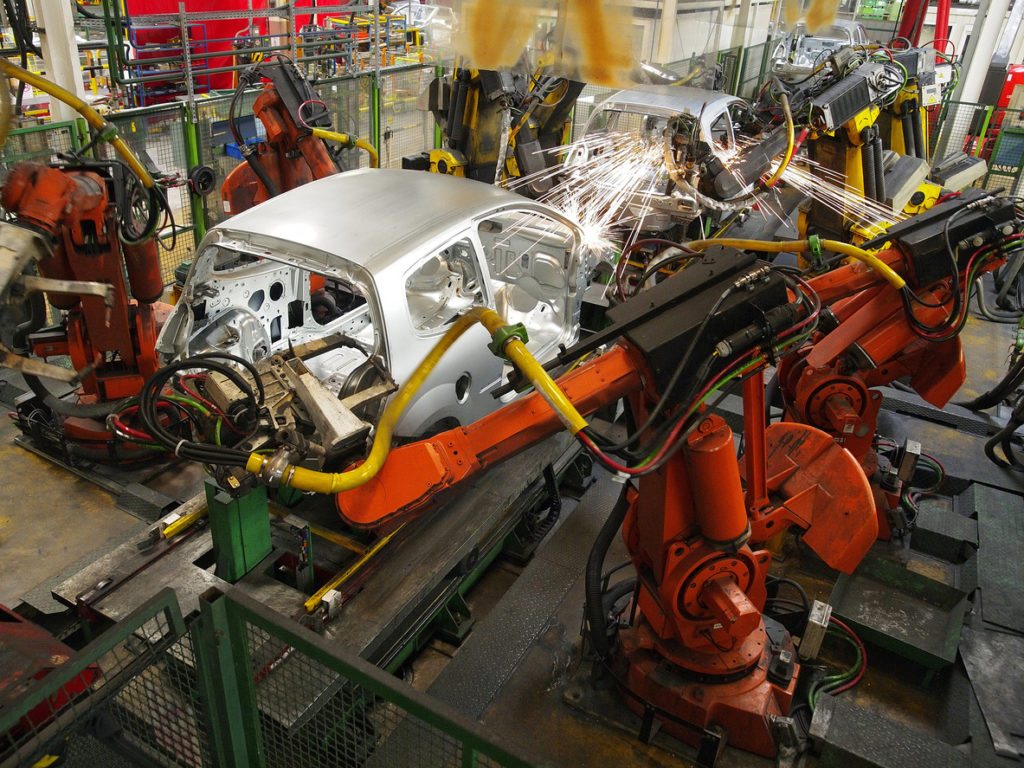Robots in Automotive Manufacturing: Top 6 Applications
Robots in Automotive Manufacturing: Top 6 Applications
 The automotive manufacturing industry has always been at the forefront of adopting industrial robotics. From early days to today, robots have become an essential part of the production process, helping to increase efficiency, reduce costs, and improve product quality. With the global automotive supply chain being one of the most automated, it's no surprise that robotic technology plays a crucial role in every stage of car production.
The automotive manufacturing industry has always been at the forefront of adopting industrial robotics. From early days to today, robots have become an essential part of the production process, helping to increase efficiency, reduce costs, and improve product quality. With the global automotive supply chain being one of the most automated, it's no surprise that robotic technology plays a crucial role in every stage of car production.
While there are numerous robotic applications in this field, six stand out as the most widely used and impactful. These technologies not only enhance productivity but also ensure consistency and safety in a complex and high-stakes environment.
Top 6 Robotic Applications in Automotive Manufacturing
The following are the most common and valuable robotic applications currently in use within the automotive industry:
1. Collaborative Robots (Cobots)
Collaborative robots are designed to work alongside humans and other machines on assembly lines. They assist in tasks such as handling, welding, and precision assembly, improving both efficiency and worker safety. Cobots are especially useful in flexible manufacturing environments where adaptability is key.
2. Robotic Painting
Painting is a labor-intensive and hazardous task, often requiring skilled workers who can perform consistently over large surfaces. Robots, on the other hand, offer precise and uniform finishes while reducing paint waste and exposure to harmful chemicals. This makes them ideal for large-scale automotive painting operations.
3. Robotic Welding
Welding is one of the most critical and long-standing applications of robotics in the automotive sector. Every vehicle requires hundreds of welds, and robots provide the speed, accuracy, and repeatability needed to maintain high-quality standards. This application has significantly improved production rates and reduced human error.
4. Robotic Assembly
In many automotive plants, robots are responsible for assembling smaller components such as engines, transmissions, and electrical systems. They also handle tasks like windshield installation and wheel mounting, enabling faster and more efficient production lines.
5. Material Removal
Robots excel at repetitive and precise tasks like trimming, cutting, and polishing. Whether it’s removing excess material from plastic parts or finishing metal surfaces, automation ensures consistency and reduces the need for manual labor in dangerous or monotonous roles.
6. Part Transfer and Machine Tending
Handling heavy materials, pouring molten metal, and loading/unloading CNC machines are all tasks that require high precision and strength. Robots perform these duties with minimal downtime, improving overall productivity and safety in the manufacturing environment.
From assembly to painting, welding to material removal, robots are transforming the way cars are made. Their ability to work efficiently, safely, and consistently has made them indispensable in modern automotive manufacturing.
With decades of experience in the global automotive industry, Genesis specializes in robotic integration and automation solutions. Explore our case studies and discover how we help automotive manufacturers achieve greater efficiency and innovation through advanced robotics. Visit our Automotive Robotics and Integration section to learn more about our services.

Electric Vehicle,Electric Cars,E Cars,Ev Cars
Wuxi Yizhiling Locomotive Development Co. LTD , https://www.yizhilingev.com